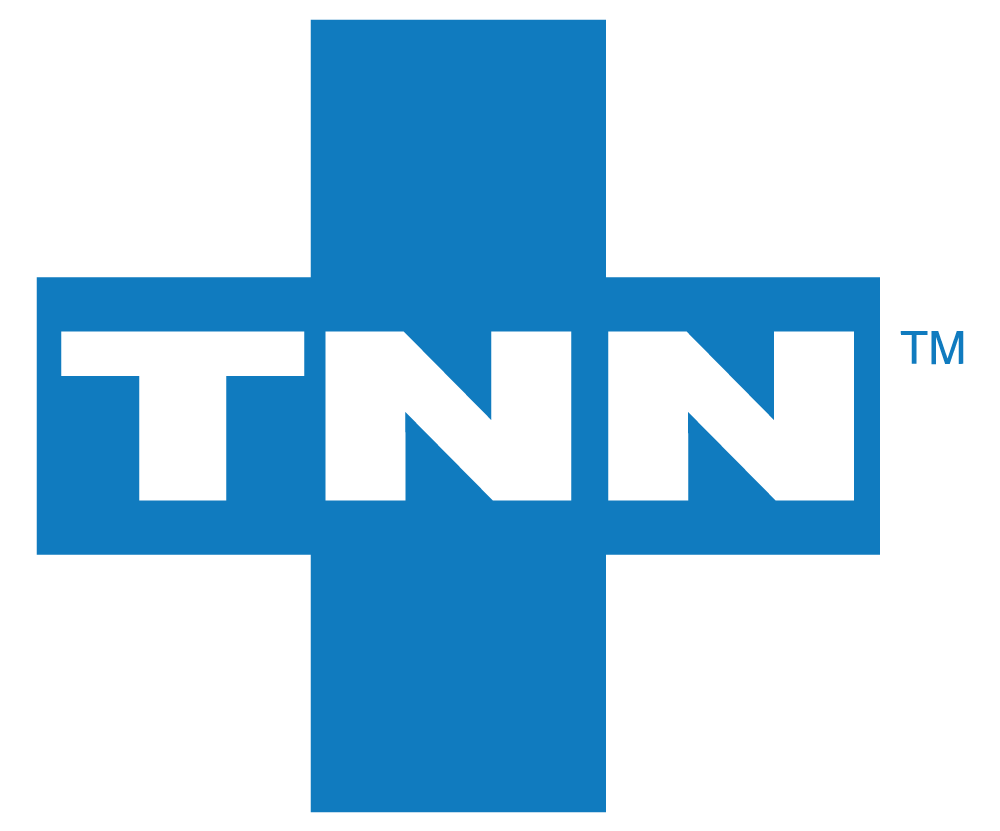
TNN Bulletin
Pediatric nursing is an incredibly rewarding career that involves working with children from infancy to adolescence. It requires a special set of hard and soft skills, including patience, compassion, and a keen eye for detail. As the demand for pediatric nurses continues to grow, there has never been a better time to consider this career path.
The benefits of working as a pediatric nurse are significant. Not only do you get to work closely with children and their families, but you also have the opportunity to make a positive impact on their lives. Pediatric nurses are responsible for providing care to sick or injured children, monitoring their progress, and administering medications. You’ll work alongside doctors, other nurses, and healthcare professionals to provide the best possible care for your young patients.
In this article, we’ll explore the steps you need to take to become a pediatric nurse and reveal some secrets to help you succeed in this field.
How to Become a Pediatric Nurse
1. Obtain a High School Diploma
The first step to becoming a pediatric nurse is to obtain a high school diploma or equivalent. A high school education is essential as it forms the foundation for further education and training. High school students should focus on science subjects such as biology, chemistry, and anatomy, as these are relevant to nursing. Strong foundational knowledge in these subjects will help you better understand complex medical concepts and prepare you for college-level coursework.
Completing high school education also teaches vital skills like critical thinking, communication, and time management. These skills will be useful in your career as a pediatric nurse, where you’ll need to communicate effectively with children and their families, make quick decisions, and manage your time efficiently.
Moreover, most nursing programs require a high school diploma or GED as a prerequisite for admission. Therefore, completing your high school education is a crucial step towards becoming a pediatric nurse.
2. Earn a Bachelor of Science in Nursing (BSN) Degree
The next step in becoming a pediatric nurse is to earn a Bachelor of Science in Nursing (BSN) degree. This four-year program provides students with comprehensive nursing education, including coursework and clinical experiences, and additional physical and social sciences, communication, leadership, and critical-thinking.
Pursuing a BSN degree offers several benefits, such as:
Enhanced Career Opportunities: A BSN degree is becoming increasingly essential for career advancement in the nursing profession. According to recent statistics, 41% of hospitals and healthcare organizations mandate new hires to possess a Bachelor of Science in Nursing (BSN) degree.
Comprehensive Nursing Education: A BSN program covers a broad range of nursing topics, including anatomy, physiology, pharmacology, ethics, and patient care. This comprehensive education prepares nurses to provide high-quality care to patients, providing them with greater expertise and a broader knowledge base.
Clinical Experience: During the BSN program, students gain hands-on clinical experience in various healthcare settings, including hospitals, clinics, and community health centers. This experience prepares them for the challenges of working as a pediatric nurse.
The coursework involved in a BSN program includes classes in anatomy, microbiology, psychology, and nursing theory. Students also learn how to provide care to individuals across the lifespan, including children.
Clinical experiences are a crucial aspect of a BSN program. Students work alongside registered nurses and other healthcare professionals to provide care to patients. Clinical experiences also help students develop vital skills, such as communication, critical thinking, and problem-solving. Through clinical experiences, students gain valuable insight into the role of a pediatric nurse and what it takes to succeed in this field.
3. Pass the National Council Licensure Examination for Registered Nurses (NCLEX-RN)
After completing your BSN degree, the next step is to pass the National Council Licensure Examination for Registered Nurses (NCLEX-RN). This exam is mandatory for all registered nurses to obtain licensure and practice nursing in the United States.
The NCLEX-RN is a computer-based exam that tests your knowledge and critical thinking skills in various areas of nursing, including health promotion, pharmacology, and patient care. The purpose of this exam is to ensure that nurses have the necessary knowledge and skills to provide safe and effective care to patients.
Effective preparation is key to passing the NCLEX-RN. Here are some tips and resources to help you prepare:
Review Content: Start by reviewing content from your nursing courses, such as textbooks, notes, and study guides. Focus on areas where you feel less confident and seek additional resources if needed.
Practice Questions: The NCLEX-RN is a test of critical thinking skills, so practicing questions is essential. Use reputable question banks or prep courses to get a feel for the types of questions you’ll encounter on the exam.
Develop a Study Plan: Set aside regular study time and create a study plan that includes specific goals and objectives. Stick to the plan and track your progress regularly.
Join a Study Group: Joining a study group with other nursing students or recent graduates can help you stay motivated and accountable while providing an opportunity to learn from others.
Use Online Resources: There are many online resources available, such as YouTube videos, podcasts, and blogs, that provide helpful tips and strategies for passing the NCLEX-RN.
4. Gain Clinical Experience in Pediatrics
Gaining clinical experience in pediatrics is a vital step toward becoming a skilled and competent pediatric nurse. There are various opportunities available to gain this experience, both during and after nursing school. Nursing students can take advantage of pediatric clinical rotations offered by their schools. These rotations typically take place in pediatric settings such as children’s hospitals, pediatric clinics, and community health centers. During these rotations, students work alongside experienced pediatric nurses, providing care to sick or injured children and their families. This will help you be exposed to new practices that you will soon perform as a registered nurse.
After graduation, new graduate nurses can enroll in pediatric residency programs offered by hospitals. These programs provide additional training and support in various areas of pediatric nursing, including administering medication to children, managing pediatric emergencies, and working with families of pediatric patients. Pediatric residency programs are an excellent way for new graduate nurses to gain specialized skills and get a head start on their careers in pediatric nursing.
Volunteering is another way to gain experience in pediatric nursing. Volunteering at a children’s hospital or pediatric clinic provides hands-on experience working with pediatric patients while giving back to the community. Volunteers may assist with tasks such as feeding, comforting, or entertaining children, providing them with a positive hospital experience. Additionally, volunteering in a pediatric setting can help you build professional connections and enhance your resume.
5. Consider Pursuing Additional Certifications
Pediatric nursing is a highly specialized field of nursing that requires additional certifications beyond the basic nursing degree. Some of the specialized certifications available for pediatric nurses include Certified Pediatric Nurse (CPN), Pediatric Nursing Certification Board (PNCB) certification, and Neonatal Resuscitation Program (NRP) certification. These certifications focus on specific areas of pediatric nursing such as acute care, primary care, and neonatal care.
Obtaining specialized certifications in pediatric nursing can greatly enhance career prospects. It demonstrates a nurse’s commitment to their profession and their willingness to go above and beyond what is required.
The benefits of obtaining specialized certifications are not just limited to career advancement. Nurses who hold certifications have access to valuable resources and networking opportunities with other professionals in the field. It allows nurses to stay informed about the latest developments in pediatric care, while also recognizing their experience and expertise. Additionally, certification can provide greater job security and open up additional career opportunities for nurses.
Essential Skills and Qualities for Pediatric Nurses
Caring for young patients can be challenging, as children have specific needs that require attention and understanding. From communication skills to patience and empathy, these qualities are critical for building trust with both the child and their family, ensuring that the child’s needs are met, and ultimately leading to better outcomes.
- Compassion and Empathy
Compassion and empathy are essential qualities for pediatric nurses to possess. These traits help nurses connect with children and their families on a deeper level, allowing them to provide more effective care. Compassion refers to the ability to understand and share the feelings of others, while empathy involves the ability to put oneself in another person’s shoes and feel what they are feeling.
In pediatric nursing, compassion and empathy are particularly significant because nurses are working with vulnerable patients who may be experiencing fear and anxiety. By demonstrating compassion and empathy, nurses can help ease these emotions and build trust with both the child and their family. This can lead to better communication and increased satisfaction with the care provided.
It includes providing emotional support during difficult procedures, listening actively to concerns, and showing genuine interest in the child’s well-being. Additionally, these qualities help nurses recognize the unique needs and preferences of each patient, enabling them to tailor their care accordingly.
- Patience and Understanding
Children can be unpredictable and may have difficulty expressing themselves, which can lead to frustration and anxiety for both the child and the nurse. This is where patience comes in – nurses who are patient can help ease a child’s anxieties and build trust. They will need love, kindness, and patience.
It’s equally important for pediatric nurses to understand the unique needs and concerns of their patients and their families. Each child is different and may require different approaches to care. Nurses who take the time to understand these differences can tailor their care to meet the specific needs of each individual patient. Moreover, understanding the concerns of the child’s family can be just as important as understanding the needs of the child.
The significance of patience and understanding in pediatric nursing cannot be overstated. Nurses who are patient and understanding create a positive environment for children and their families, making it easier for them to communicate their needs and concerns. This can lead to better outcomes and more satisfied patients and families.
- Strong Communication Skills
Effective communication helps build trust and rapport with patients and their families, ensures that important information is conveyed accurately, and can lead to better outcomes. Good communication is especially vital in pediatric nursing because children and adolescents may struggle to verbalize their needs and concerns.
When communicating with children, it’s essential to use age-appropriate language and keep explanations simple. Nurses should also use non-verbal cues such as facial expressions and body language to help convey their message. Adolescents, on the other hand, may prefer more direct communication and open-ended questions that allow them to express their thoughts and feelings. It’s also essential to consider cultural differences and adjust communication styles accordingly.
When interacting with families, nurses should be respectful and empathetic. Actively listening to concerns and providing reassurance can go a long way in building trust. It’s also important to provide clear and concise information about the child’s care plan, including any potential risks or complications.
To enhance communication skills, pediatric nurses can participate in training programs and continuing education courses focused on communication techniques. They can also seek feedback from colleagues, patients, and families to identify areas for improvement.
- Ability to Work in a Team
Pediatric nursing is a highly collaborative profession that requires a strong ability to work in a team. Nurses must collaborate with other healthcare professionals, including doctors, therapists, and social workers, to provide the best possible care for their patients. Effective communication and teamwork are essential for ensuring that all aspects of a child’s care are addressed.
Teamwork and dependability are particularly important in pediatric nursing because children often require care from multiple healthcare professionals. By working collaboratively, healthcare professionals can ensure that the child receives a comprehensive and coordinated approach to care. Collaboration also helps prevent errors or gaps in care and can lead to more positive outcomes for the patient.
Moreover, effective collaboration with other healthcare professionals can enhance the professional development of pediatric nurses. Learning from other professionals can broaden their knowledge base and improve their skills, ultimately leading to better patient care.
Practical Tips for Excelling as a Pediatric Nurse
Pediatric nursing can be an incredibly rewarding profession, but it also comes with its unique set of challenges. From working with young patients who may have trouble communicating their needs to collaborating with other healthcare professionals, there are many aspects to consider when striving for excellence in this field.
We will offer practical tips and insights for pediatric nurses looking to enhance their skills and provide the best possible care for their patients.
- Continual Professional Development
Staying current with the latest advancements in pediatric nursing helps nurses provide the best possible care for their patients. It also enhances their expertise and professional growth, leading to better job satisfaction and career advancement opportunities.
There are various ways for pediatric nurses to engage in professional development activities. One option is to attend conferences and seminars focused on pediatric nursing. These events offer opportunities to learn from experts in the field, network with colleagues, and discover new trends and approaches to care.
Another way to engage in professional development is to pursue advanced degrees or certifications. Specializations such as pediatric oncology, pediatric cardiology, or neonatal care require additional training and education, allowing nurses to enhance their skills and knowledge in specific areas of pediatric nursing.
Pediatric nurses can also participate in online courses or webinars focused on new research and technology. These resources allow nurses to stay abreast of the latest trends and advancements in pediatric nursing, even if they are unable to attend in-person events.
Lastly, participating in professional nursing organizations can be an excellent way to engage in professional development activities. These organizations provide networking opportunities and access to resources such as research studies and clinical practice guidelines.
- Networking and Mentorship
Building relationships with other pediatric nurses and finding a mentor can offer numerous benefits, both professionally and personally.
Networking with other pediatric nurses can provide opportunities to learn from colleagues, share knowledge and expertise, and discover new approaches to care. Networking can also lead to new career opportunities, such as job offers or recommendations for leadership positions. Moreover, networking with other pediatric nurses can help to build a sense of community within the profession, which can be a source of support and encouragement.
Finding a mentor is equally important for professional growth. A mentor can offer guidance and support, and advices on how to navigate the challenges of working in pediatric nursing, and providing advice on how to advance one’s career. Mentors can also provide emotional support, serving as a sounding board for concerns and offering a fresh perspective on issues.
The benefits of networking and mentorship are clear, but how does one go about finding these opportunities? One way to network is to attend networking events, such as conferences and other professional development events, such as those discussed earlier. Another way to network is to join professional organizations and online forums dedicated to pediatric nursing. These groups can provide access to other professionals in the field and offer opportunities for sharing knowledge and expertise.
When seeking a mentor, it’s essential to look for someone who has experience and expertise in the area of pediatric nursing that you wish to develop. Look for someone whose values and approach to nursing align with your own, and be willing to invest time and effort in building a relationship.
- Self-Care and Burnout Prevention
Like any other career, burnout can also be experienced in Pediatric Nursing. According to a study, burnout is being experienced by 27% of pediatric nurses. Hence, self-care and burnout prevention are crucial aspects of maintaining physical and mental well-being in the demanding field of pediatric nursing. Taking care of oneself is essential for providing quality care to patients and avoiding burnout.
Self-care involves activities that promote physical and emotional health, such as exercise, healthy eating, getting enough sleep, and relaxation techniques like meditation or yoga. It also includes setting boundaries and taking time off to pursue hobbies and activities that bring joy and fulfillment.
Preventing burnout is equally important. Burnout is a state of emotional, physical, and mental exhaustion that results from prolonged stress. Pediatric nurses are at high risk for burnout due to the emotionally demanding nature of their work. To prevent burnout, it’s essential to recognize the signs early and take steps to address them.
Here are some practical tips for preventing burnout in the demanding field of pediatric nursing:
Prioritize self-care: Make time for regular exercise, healthy eating, sufficient sleep, and relaxation techniques.
Build a support system: Cultivate relationships with colleagues, friends, and family that provide emotional support and a listening ear.
Set boundaries: Establish clear boundaries between work and personal life, and avoid overworking or taking on too many responsibilities.
Find meaning and purpose: Connect with the underlying purpose of pediatric nursing and focus on meaningful moments in your work.
Take breaks: Take frequent breaks throughout the day to recharge and reset. Get up and stretch, go for a walk outside, or simply take a few deep breaths.
Bottom Line
Becoming a successful pediatric nurse requires a unique set of skills and qualities. Effective communication, patience, empathy, and the ability to work in a team are essential for providing the best possible care for young patients. Continual professional development is also crucial for staying current with the latest advancements in pediatric nursing and enhancing personal and professional growth.
Networking with other pediatric nurses and finding a mentor to guide and support career growth can also be beneficial. Taking care of oneself through self-care activities and preventing burnout is equally important to maintain physical and mental well-being in the demanding field of pediatric nursing.
For aspiring nurses, pursuing a career in pediatric nursing can be incredibly rewarding. It requires dedication, hard work, and a deep passion for caring for children and their families. By following these essential steps and embracing these qualities, aspiring nurses can make a positive impact on the lives of young patients and their families.
If you have a passion for pediatric care, becoming a pediatric nurse can be a fulfilling and meaningful career path. With the right skills, qualities, and mindset, you can provide the best possible care for young patients and make a positive difference in their lives.








